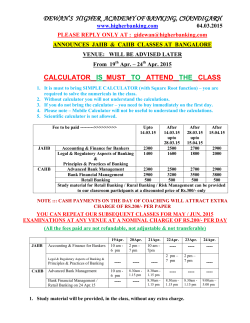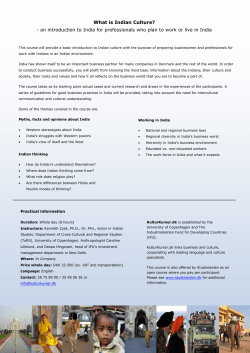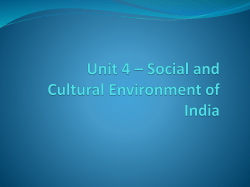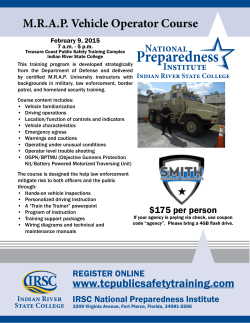
I S R J
Article Review Report Certificate Impact Factor 2.1506 (UIF) RNI: MAHMUL 2011/38595 ISSN 2230-7850 Indian Streams Research Journal International Recognition Multidisciplinary Research Journal DOI Prefix : 10.9780 ISSN 2230-7850 Impact Factor : 2.1506 (UIF) Journal DOI : 10.9780/22307850 Indian Streams Research Journal International Recognize Multidisciplinary Research Journal This is to certify that our Editorial, Advisory, and Review Board Accepted Research Paper of Savitri C Shigli and Ramesh Y Malagi Your Article QR Code ORIGINAL ARTICLE Topic:- Atrocities Act On Weeaker Sections In Women College:- Assistant Professor Dept Of Sociology , Govt First Grade College,Gokak. The Research paper is Received : 15th July . 2014, Published: 1st August . 2014 Original & Innovative it is Done Double Blind Peer Reviewed. Your Article is Published in The Month of August Year 2014. Vol. – IV, Issue – VII, August . 2014 Laxmi Book Publication 258/34, Raviwar Peth, Solapur-413005, Maharashtra, India Contact Detail: +91-0217-2372010 / 9595-359-435 e-Mail: ayisrj2011@gmail.com Website: www.isrj.net Authorised Signature See your article on Mobile H.N. Jagtap Editor-in-Chief How to Write ArticlesHere are a few basic steps to take to craft an interesting, informative article. Method 1 of 3: Come Up With An Idea 1.Get to know your audience. Decide who you need to write for before proceeding with planning or writing an article. Identify the needs of your readership. What do your readers need to know? How does your own knowledge matchup against the information they need? This will be the easiest way for you to find a topic to write about2.Be unique. If you are writing an article about something that other people are also writing about, try to be unique in how you approach the material 3.Be passionate. You should care about the topic you choose to write about. Your enthusiasm will show in your writing and it will be much more engaging for your readers Method 2 of 3: Research Your Idea 1.Learn the basics. Get the general explanation of whatever you are trying to write about. This will give you a basic framework for what to look for as you research. 2. Find reliable sources. Now that you know what to look for, research your topic. You can use the internet, a library, conduct interviews, watch documentaries, or whatever you feel is appropriate to teach you everything you need to know about your topic. Be an expert! 3.Get different types of material. During your research, look for material that isn't text. This can be used or altered to add to your article. Method 3 of 3: Write Your Article 1.Decide your length. Does this article have a word count? Do you need to fill a certain number of pages? Consider what type of content you're writing about and how much space that can fill, as well as how much needs to be written in order to cover the topic adequately, before proceeding with writing your article. 2.Outline your article. Before you begin formal writing, you will want to outline your article. 3.Edit your work. Before you submit your work, you will want to do some editing and revision. If time allows, wait for a day or two before editing 4.Respect the rights of other writers. If you are using information from an external source, be sure to cite the source at the bottom of the article. 5.Submit your work. When you've finished, submit your work in the appropriate manner. Contact Us: ATROCITIES ACT ON WEEAKER SECTIONS IN WOMEN GO ARTICLE DOAJ ZOTERO (United States) (Sweden) (United States) GOOGLE SCHOLAR (United States) MY NET RESEARCH DIGG MENDALEY DELECIOUS FIGSHARE ENDNOTE Easybib.Com (United Kingdom) (United States) (United States) (Ireland) (United States) Correspondence to, Savitri C Shigli and Ramesh Y Malagi Assistant Professor Dept Of Sociology , Govt First Grade College,Gokak. Research Scholar,Dept Of Political Science , Karnatak University,Dharwad. Rajani Kota Review Editor 4 CITULIKE (United States) (United States) 258/34m Raviwar Peth, Solapur-413005 India Contact: +91-217-2372010 / 9595-359-435 e-Mail: ayisrj2011@gmail.com Website: www.isrj.net Happy Writing..... (India) (United States) Authorized Signature Laxmi Book Publication DRJI ==::Your article is deposited in::= Happy Writing..... 1 ABSTRACT: Indian women are still one of the biggest sufferers of violence against women in the world. Every second in India many women are raped, killed and burned alive. In many parts of India, women are treated as second citizens or as usable objects. Very High High Average Low Very Low 1. Interest of the topic to the readers 2. Originally & Novelty of the ideas Abstract Report: The Title Accurately Said The Study was About. INTRODUCTION: They are the types of the attainment of the goals of welfare state and efforts of the government are directed towards this end in view. But unfortunately even after so many years of Indian independence, people continue to be mere farce as they have been systematically denied to women. Family system, vulnerability, inhibitions. Introduction Report: This Article Include Full Introduction, Methods, Results & Introduction Section. 3. Importance of the proposed ideas 4. Timelines 5. Sufficient information to support the assertions made & conclusion drawn 6. Quality of writing(Organization, Clarity, Accuracy Grammer) 7. References & Citation(Up-to-date, Appropriate Sufficient) OVERVIEW: ? Meaning And Concept Of Atrocities ? Nature And Charaterietics Of Atrocities ? Types Of Atrocities On Weaker Sections ? Other Kinds Of Atrocitiies On Women ? Causes Of Atrocities On Women Overview Report: Figures are Imported to Provide Explanation for Background Information. Conclusion of This Paper Clearly Supported Results. CONCLUSION: In the relationship between man and women, it is an individual with a powerful personality who acquires a position of dominance. Generally, it is a man who commands power over a woman thoug in a few cases, a women also might exercises control over man. Conclusion Report: The Text is Rounded off with a Conclusion that Discusses the Implication of The Findings & Ideas Discussed & Their Impact on Future Research Direction. REFERENCES: ? N. jayapalan ---- Women and Human Rights. ? Julie Lee ---- Violence against women some observations. ? Shirin Kudehedkar ---- Violence against women – women against violence ---- Sabina A1- Issa. ? Ram Ahuja ---- Indian social system. ? A. K. Kumar ---- Women and crime. ? Ram Ahuja ----Social Problems of women. ? Shobha Sexena ---- Crimes against Women. ? Shobha ---- Atrocities on women Reference Report: There are Places where the Author Savitri C Shigli and Ramesh Y Malagi Need to Cite a Reference, but Have Not Happy Writing 2 Savitri C Shigli and Ramesh Y Malagi 1. 1st to 1st July 2014 2014 Women's Leadership International Conference (http://www.advenaworld.com/women-s-conference.html ) 2. 2nd to 3rd August 2014 12th International Conference of Management and Behavioural Sciences (http://smbs.in/newsdetail.php?id=39 ) 3. 1st to 4th September 2014 Prague 12th International Academic Conference - The IISES (http://www.iises.net/conferences/prague-conference-semtember-1-4-2014/ ) 4. 2nd to 3rd October 2014 7th International Congress on Conflictology and Peace ( http://www.uoc.edu/portal/en/symposia/conflictologia-i-pau-2014/index.html ) 5. 1st to 3rd November 2014 3rd Global Conference: Play (http://www.inter-disciplinary.net/probing-theboundaries/making-sense-of/play/call-for-papers/ ) Happy Writing 3 Savitri C Shigli and Ramesh Y Malagi
© Copyright 2025





















